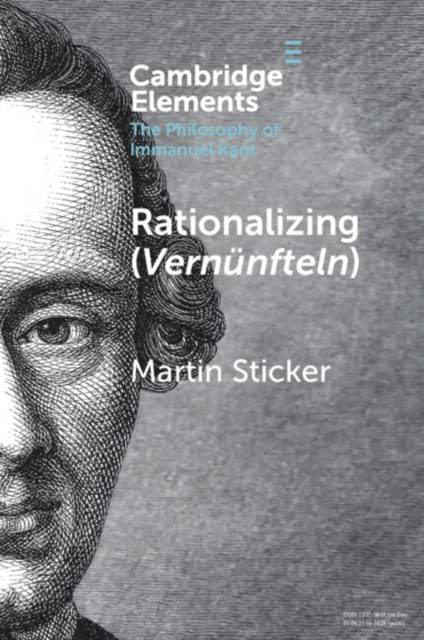
- Afhalen na 1 uur in een winkel met voorraad
- Gratis thuislevering in België vanaf € 30
- Ruim aanbod met 7 miljoen producten
- Afhalen na 1 uur in een winkel met voorraad
- Gratis thuislevering in België vanaf € 30
- Ruim aanbod met 7 miljoen producten
Zoeken
Omschrijving
Kant was a keen psychological observer and theorist of the forms, mechanisms and sources of self-deception. In this Element, the author discusses the role of rationalizing/Vernünfteln for Kant's moral psychology, normative ethics and philosophical methodology. By drawing on the full breadth of examples of rationalizing Kant discusses, the author shows how rationalizing can extend to general features of morality and corrupt rational agents thoroughly (albeit not completely and not irreversibly). Furthermore, the author explains the often-overlooked roles common human reason, empirical practical reason and even pure practical reason play for rationalizing. Kant is aware that rationality is a double-edged sword; reason is the source of morality and of our dignity, but it also enables us to seemingly justify moral transgressions to ourselves, and it creates an interest in this justification in the first place. Finally, this Element discusses whether Kant's ethical theory itself can be criticised as a product of rationalizing.
Specificaties
Betrokkenen
- Auteur(s):
- Uitgeverij:
Inhoud
- Aantal bladzijden:
- 78
- Taal:
- Engels
- Reeks:
Eigenschappen
- Productcode (EAN):
- 9781108714426
- Verschijningsdatum:
- 20/01/2022
- Uitvoering:
- Paperback
- Formaat:
- Trade paperback (VS)
- Afmetingen:
- 152 mm x 229 mm
- Gewicht:
- 117 g

Alleen bij Standaard Boekhandel
+ 53 punten op je klantenkaart van Standaard Boekhandel
Beoordelingen
We publiceren alleen reviews die voldoen aan de voorwaarden voor reviews. Bekijk onze voorwaarden voor reviews.








